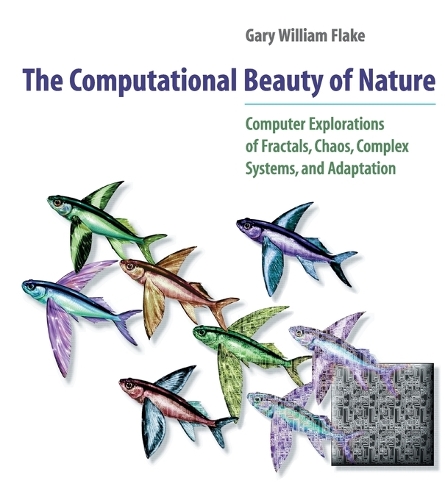
The Computational Beauty of Nature: Computer Explorations of Fractals, Chaos, Complex Systems, and Adaptation
(Paperback)
Publishing Details
The Computational Beauty of Nature: Computer Explorations of Fractals, Chaos, Complex Systems, and Adaptation
By (Author) Gary William Flake
MIT Press Ltd
MIT Press
27th January 2000
United States
Classifications
Tertiary Education
Non Fiction
Cybernetics and systems theory
Fractal geometry
Chaos theory
003.3
Winner of
Physical Properties
Paperback
520
Width 203mm, Height 229mm, Spine 22mm
907g
Description
In this book, Gary William Flake develops in depth the simple ideas that recurrent rules can produce rich and complicated behaviours. Distinguishing "agents" (such as molecules, cells, animals, and species) from their interactions (like chemical reactions, immune system responses, sexual reproduction and evolution), Flake argues that it is the computational properties of interactions that account for much of what we think of as "beautiful" and "interesting". From this basic thesis, Flake explores what he considers to be today's four most interesting computational topics: fractals, chaos, complex systems and adaptation. Each of the book's parts can be read independently, enabling even the casual reader to understand and work with the basic equations and programs. Yet the parts are bound together by the theme of the computer as a laboratory and a metaphor for understanding the universe. The inspired reader will experiment further with the ideas presented to create fractal landscapes, chaotic systems, artificial life forms, genetic algorithms, and artificial neural networks.
Reviews
"This book is a delight." Barak Pearlmutter , University of New Mexico "This delightful book illustrates beautifully the paradigm shift inphysics from writing equations and solving them to computer modelingand experimentation." Greg Chaitin , author of The Limits of Mathematics
